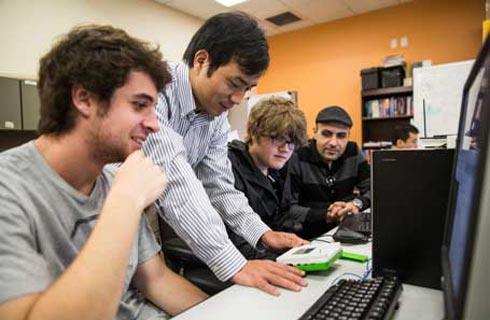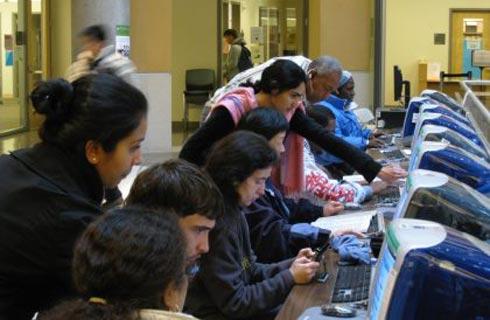- IDP China>
- 课程库>
- 工程与技术>
- 物理科学>
- 物理和理论化学>
- Master of Science in Chemistry - Physical and Computational Research
Master of Science in Chemistry - Physical and Computational Research

学历文凭
Masters Degree

专业院系
Department of Chemistry and Biochemistry

开学时间

课程时长

课程学费

国际学生入学条件
Complete a four-year college course of study and hold an acceptable baccalaureate degree from a regionally accredited institution by the end of the summer term prior to Fall enrollment or the end of the Fall semester for Spring enrollment.
Be in good standing at the last college or university you attended.
Meet the minimum GPA requirements for admission to the university. This can be met in any of the following ways:
Hold an advanced degree
Hold a baccalaureate degree with a cumulative GPA of at least 2.5. (No Rounding)
Hold a baccalaureate degree with a GPA of at least 2.5 (No Rounding) in the last 60 semester or 90 quarter units you attempted, excluding lower-division and/or extension coursework attempted after the baccalaureate degree.
Complete the online application as either a Graduate or International applicant. Please initiate requests for 3 letter writers to upload recommendation letters on your behalf to CalStateApply.
Have official copies of your undergraduate transcript(s) sent to CSULB Enrollment Services.
Taking General GRE is optional, if taken, send official test scores to CSULB
TOEFL iBT - 80 and TOEFL PBT - 550
IELTS - 6.0
IDP—雅思考试联合主办方

雅思考试总分
6.0
- 雅思总分:6
- 托福网考总分:80
- 托福笔试总分:550
- 其他语言考试:Pearson Test of English - 58
CRICOS代码:
申请截止日期: 请与IDP联系 以获取详细信息。
课程简介
相关申请
 预科
预科 奖学金
奖学金 实习机会
实习机会 在校学习
在校学习 跨境学习
跨境学习 校园授课-线上开始
校园授课-线上开始 在线/远程学习
在线/远程学习
开学时间&学费
学费信息仅供参考,请与IDP联系以获取详细信息
| 开学时间 | 时长 | 学费 | 地点 |
|---|
本校相关课程

艺术学学士-工作室艺术
学历文凭
Bachelor Degree
开学日期
课程费用总额


艺术学士-艺术史
学历文凭
Bachelor Degree
开学日期
课程费用总额


艺术学士-艺术教育
学历文凭
Bachelor Degree
开学日期
课程费用总额


Bachelor of Fine Arts in Art - 3D Media (Fiber, Metal or Wood)
学历文凭
Bachelor Degree
开学日期
课程费用总额


Bachelor of Fine Arts in Art - Ceramics
学历文凭
Bachelor Degree
开学日期
课程费用总额


Bachelor of Fine Arts in Art - Drawing and Painting
学历文凭
Bachelor Degree
开学日期
课程费用总额

其他相关课程

化学理学硕士-物理和计算方法
 布鲁克大学
布鲁克大学学历文凭
Masters Degree
开学日期
课程费用总额


化学哲学博士-物理与计算方法
 布鲁克大学
布鲁克大学学历文凭
Ph.D.
开学日期
课程费用总额


化学哲学博士-物理化学
 多伦多大学
多伦多大学学历文凭
Ph.D.
开学日期
课程费用总额


物理和理论化学哲学博士
 不列颠哥伦比亚大学
不列颠哥伦比亚大学学历文凭
Ph.D.
开学日期
课程费用总额


化学理学硕士-物理和理论化学
 不列颠哥伦比亚大学
不列颠哥伦比亚大学学历文凭
Masters Degree
开学日期
课程费用总额


Master of Science in Chemistry - Physical Chemistry
 滑铁卢大学
滑铁卢大学学历文凭
Masters Degree
开学日期
课程费用总额










 美国
美国
